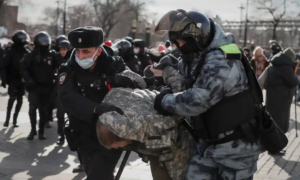Adults with persistent COVID-19 symptoms are about twice as likely to report psychiatric problems such as depression, anxiety, or cognitive difficulties versus other adults, reports a study in JAMA Network Open. Yet these adults with post–COVID-19 condition (PCC) are also more likely to report cost barriers to mental health treatment that delayed or inhibited their care.
“People with PCC may have more difficulty paying for counseling or therapy due to lost employment wages and greater costs of managing complications from COVID-19, or they may experience challenges obtaining health plan authorization for these supports,” wrote Hiten Naik, M.D., of the University of British Columbia in Vancouver, and colleagues.Haik and colleagues examined responses from the 2022 National Health Interview Survey; this was the first year this nationally representative U.S. survey had questions about PCC. Their final sample included 25,122 participants, of whom 844 had PCC at the time they took the survey. PCC was defined as the continued presence of one or more new-onset symptoms following coronavirus infection at least three months later.The participants with current PCC were more likely to be female, White, and unvaccinated and have medical comorbidities. However, after adjusting for these factors and other variables, the researchers found that compared with the general adult population, those with PCC were
- 1.96 times as likely to report moderate or severe depression.2.21 times as likely to report moderate or severe anxiety.1.95 times as likely to report sleep difficulties.2.04 times as likely to report cognitive difficulties.1.85 times as likely to report disabling fatigue.
Despite the greater rate of depression and anxiety among adults with PCC, these adults were no more likely to have received medications, counseling, or behavioral therapy within the past year than the general population. Adults with PCC were about twice as likely to report they had to delay or not receive counseling or therapy from a mental health professional because of cost.“At the health system level, it may be useful for health care leaders to prioritize the inclusion of affordable mental health supports when designing care pathways for PCC,” Haik and colleagues concluded.For related information, see the Psychiatric News article, “Psychiatrists Vital to Care of Patients With Long COVID.”




